Industrial Washing Machine: Commercial Laundry Needs
Introduction to Industrial Washing Machines
Industrial washing machine is vital for industries needing clean, sanitized, and processed materials. These machines are robust, designed for handling large-scale cleaning tasks. They cater to sectors like healthcare, manufacturing, and commercial laundry services. Reliability, efficiency, and performance are key attributes of these machines.
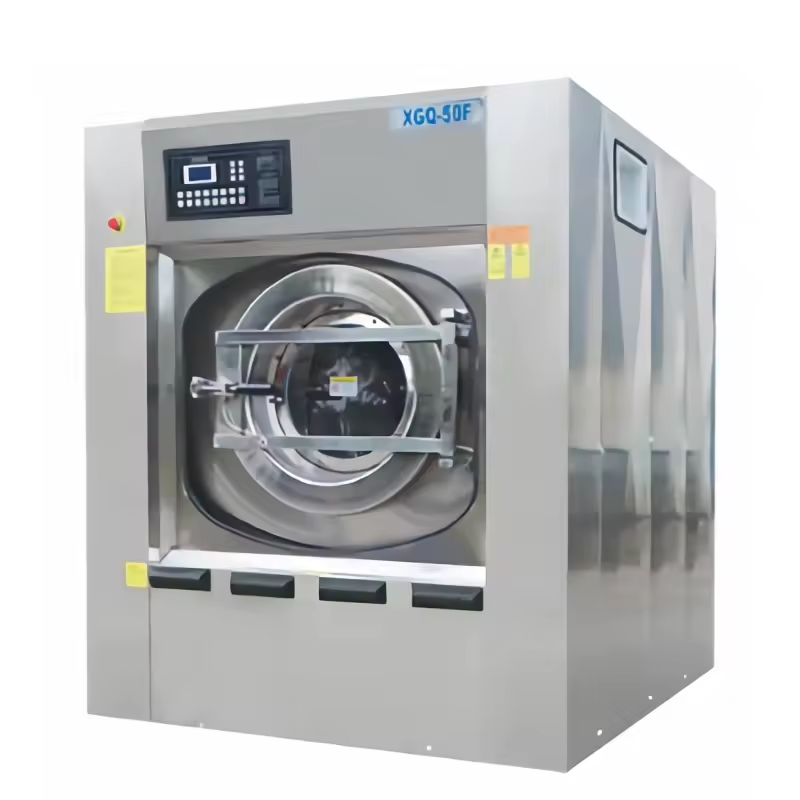
What Are Industrial Washing Machines?
Industrial washing machines are specialized devices for washing bulk loads effectively and efficiently. They differ significantly from regular household washers, offering higher capacities and durability. Equipped with advanced features, they handle challenging cleaning tasks quickly. They are engineered for continuous operation and heavy-duty cycles.
Common Applications and Industries
Industrial washing machines serve multiple sectors, including:
- Healthcare: Used extensively to sanitize linens and clothing in hospitals.
- Manufacturing: Clean machinery parts and tools efficiently.
- Hospitality: Perfect for hotels to manage extensive laundry needs.
- Food Processing: Clean trays, utensils, and containers to maintain hygiene.
- Automotive: Wash parts and components used in vehicle manufacturing.
Their versatility aligns with the unique demands of different industries, making them indispensable for cleanliness and productivity.
Types of Industrial Washing Machines
Choosing the right industrial washing machine depends on specific operational requirements. There are various types catering to different cleaning needs. Each type offers unique benefits and functionalities to suit diverse industries.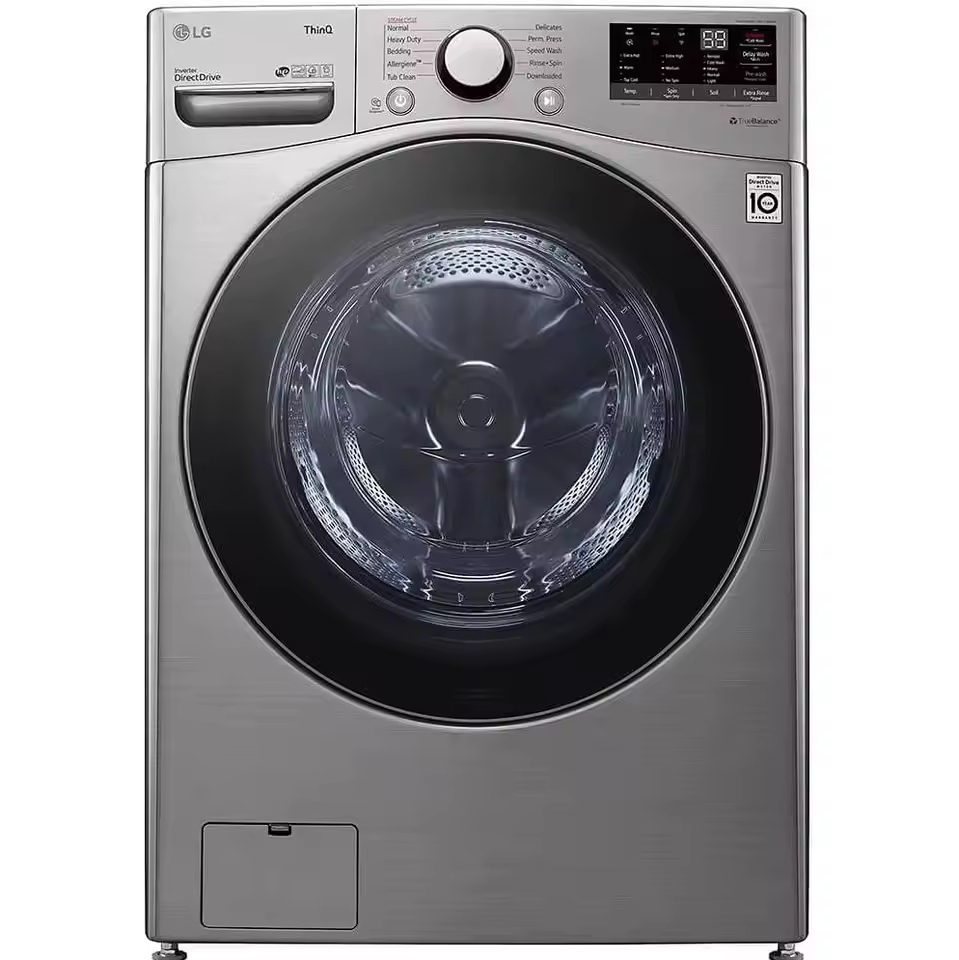
Tunnel Washers
Tunnel washers are ideal for large-scale operations. They are designed for continuous cleaning processes. Materials move through multiple chambers, each handling distinct washing stages. These washers save time and allow efficient cleaning for bulk loads. Industries like healthcare and hospitality use tunnel washers to streamline their operations.
Agitating Washers
Agitating washers clean items by creating strong mechanical movements. They are excellent for items requiring thorough scrubbing. These machines are commonly used in manufacturing and automotive sectors. They clean parts, tools, and machinery effectively. Their vigorous washing mechanism ensures cleanliness even for heavily soiled items.
Rotary Washing Machines
Rotary washing machines use rotating drums to clean items. They are versatile and easy to operate. These machines are suitable for delicate or complex components needing gentle handling. Industries such as food processing prefer rotary washers for trays and utensils. Their consistent performance ensures contamination-free results.
Key Benefits of Industrial Washing Machines
Industrial washing machines offer a range of benefits that enhance operations across industries. These advantages improve efficiency, reduce costs, and ensure higher hygiene standards. Let’s explore the key benefits in detail.
Increased Efficiency and Productivity
Industrial washing machines streamline cleaning processes, saving time and effort. Their large capacities handle bulk loads efficiently and quickly. Advanced features, like automation, increase productivity by reducing manual intervention. Continuous operation ensures faster turnaround times for high cleaning demands. This makes them invaluable for busy industries like healthcare and hospitality.
Reduced Labor Costs
Using industrial washing machines minimizes the need for extensive manual labor. Automated systems handle repetitive tasks, reducing workforce requirements significantly. These machines also shorten cleaning times, allowing employees to focus on other responsibilities. Businesses benefit from lower labor expenses and optimized operations.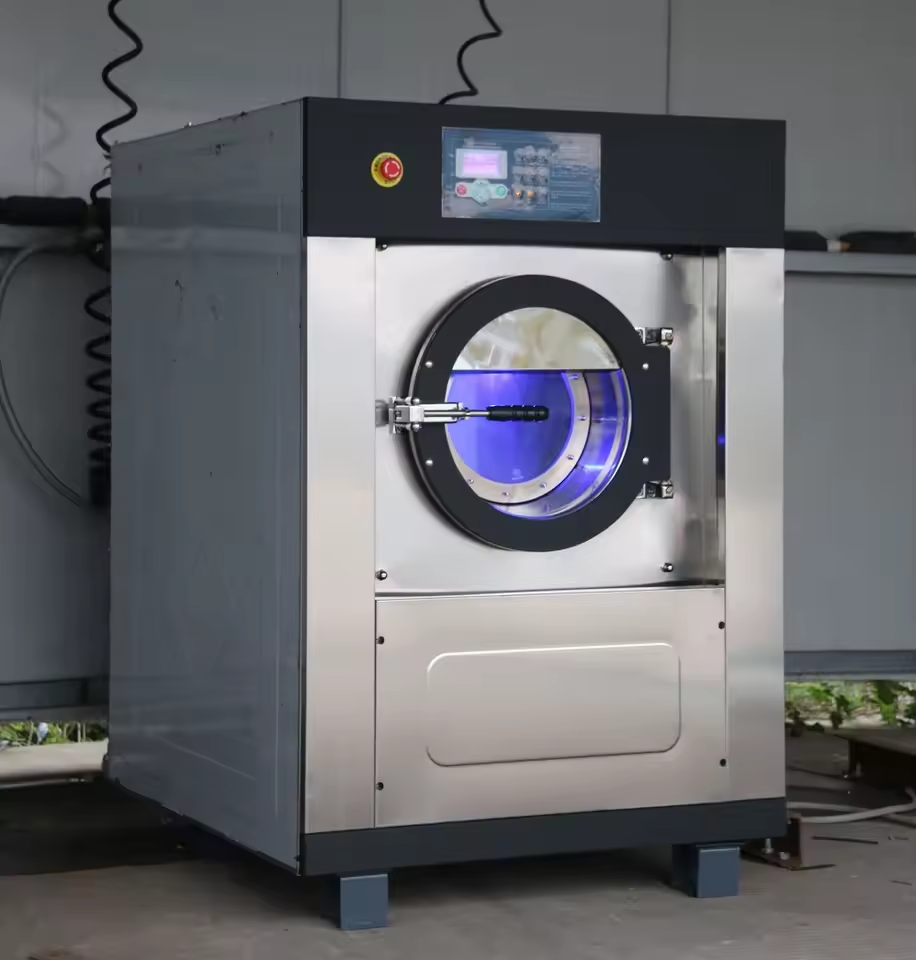
Higher Cleaning Standards
Industrial washing machines ensure thorough and consistent cleaning results. They use advanced mechanisms to remove dirt, stains, and contaminants effectively. High-temperature settings guarantee proper sanitization, meeting stringent hygiene standards. Industries like food processing and healthcare rely on these machines for clean and safe materials.
Energy and Water Conservation
Modern industrial washing machines are designed with energy efficiency in mind. They use optimized water and electricity consumption during each cycle. Smart systems adjust operations based on load requirements, lowering utility expenses. This not only saves resources but also supports eco-friendly business practices.
Industrial washing machines deliver unmatched capabilities, making them essential for industrial cleaning demands. Their efficiency, cost savings, and high standards contribute to smoother, more sustainable operations.
Features to Look for in an Industrial Washing Machine
When choosing an industrial washing machine, focusing on critical features ensures optimal performance. These features directly impact efficiency, durability, and operational ease.
Capacity and Load Size
Capacity is crucial for meeting cleaning demands in industrial settings. Choose a machine with a sufficient load size for your operations. Overloading can strain the machine and lower cleaning efficiency. Conversely, underutilizing capacity wastes energy and resources. Match the load size to your industry’s typical cleaning requirements. For high-volume industries like hospitality, larger capacities improve productivity significantly.
Durability and Material Quality
Durable construction prolongs the machine’s lifespan under heavy-duty conditions. Look for machines made from corrosion-resistant materials, like stainless steel. High-quality materials withstand harsh chemicals and frequent use. Strong construction also prevents breakdowns, reducing maintenance costs over time.
Automation Options
Automation simplifies industrial cleaning processes and reduces manual intervention. Features like programmable cycles, load sensing, and remote control improve usability. Automatic systems adjust settings for optimal water and energy use. Automated machines save time, lower labor costs, and provide consistent cleaning quality. Industries with high-frequency cleaning demands benefit the most from automation.
Selecting a machine with suitable capacity, durability, and advanced automation ensures smooth and efficient operations. These features are essential for maximizing the benefits of your industrial washing machine.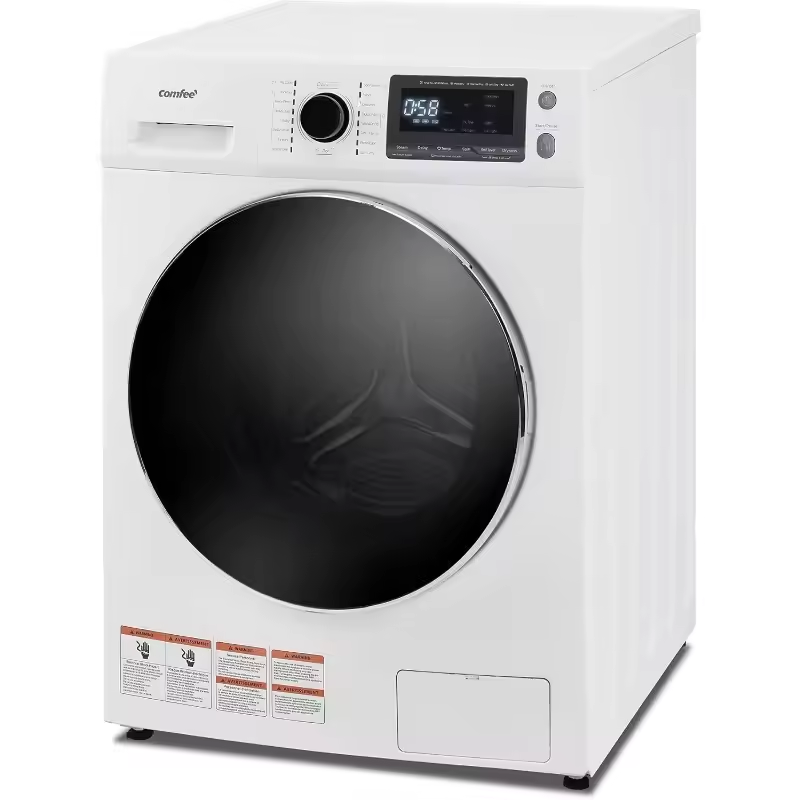
How to Choose the Right Industrial Washing Machine
Selecting the right industrial washing machine is crucial for ensuring operational efficiency. A well-suited machine can improve performance, reduce costs, and meet high production demands. Consider these factors when making your choice.
Assessing Your Industry’s Needs
Before purchasing, evaluate your specific industry requirements. Determine the volume and type of materials to clean. For example:
- Healthcare: High-temperature sanitization for linens and garments is critical.
- Food Processing: Look for machines designed to handle utensils and trays delicately.
- Automotive: Opt for efficient systems that can remove grease and grime from parts.
Identify cleaning frequency and workload. Industries with frequent washing cycles, like hotels, may need high-capacity machines. Additionally, consider compliance with hygiene and safety regulations in your sector.
Comparing Brands and Models
Not all industrial washing machines are created equal. Compare available brands and models based on the following:
- Features: Look for automation, energy efficiency, and usability. These add convenience and improve performance.
- Capacity: Ensure the machine fits typical load sizes in your industry.
- Reputation: Choose brands known for quality and reliability.
- Warranty: Opt for models with strong warranty coverage and reliable after-sales support.
Request product demonstrations or trials when possible. This helps you observe the machine’s performance and ensures it fits your needs.
Maintenance and Support Considerations
Maintenance plays a key role in the longevity of an industrial washing machine. Evaluate a machine’s maintenance needs before purchasing:
- Ease of Maintenance: Choose a machine with accessible parts and simple maintenance processes.
- Service Availability: Ensure the manufacturer offers local support and spare parts.
- Training: Some models require specialized training for staff operation and upkeep.
Additionally, assess customer testimonials about service quality. A reliable supplier provides prompt support when technical issues arise.
By carefully assessing industry requirements, analyzing features, and prioritizing maintenance, you can select the perfect industrial washing machine. This thoughtful approach ensures efficiency, cost savings, and long-term satisfaction.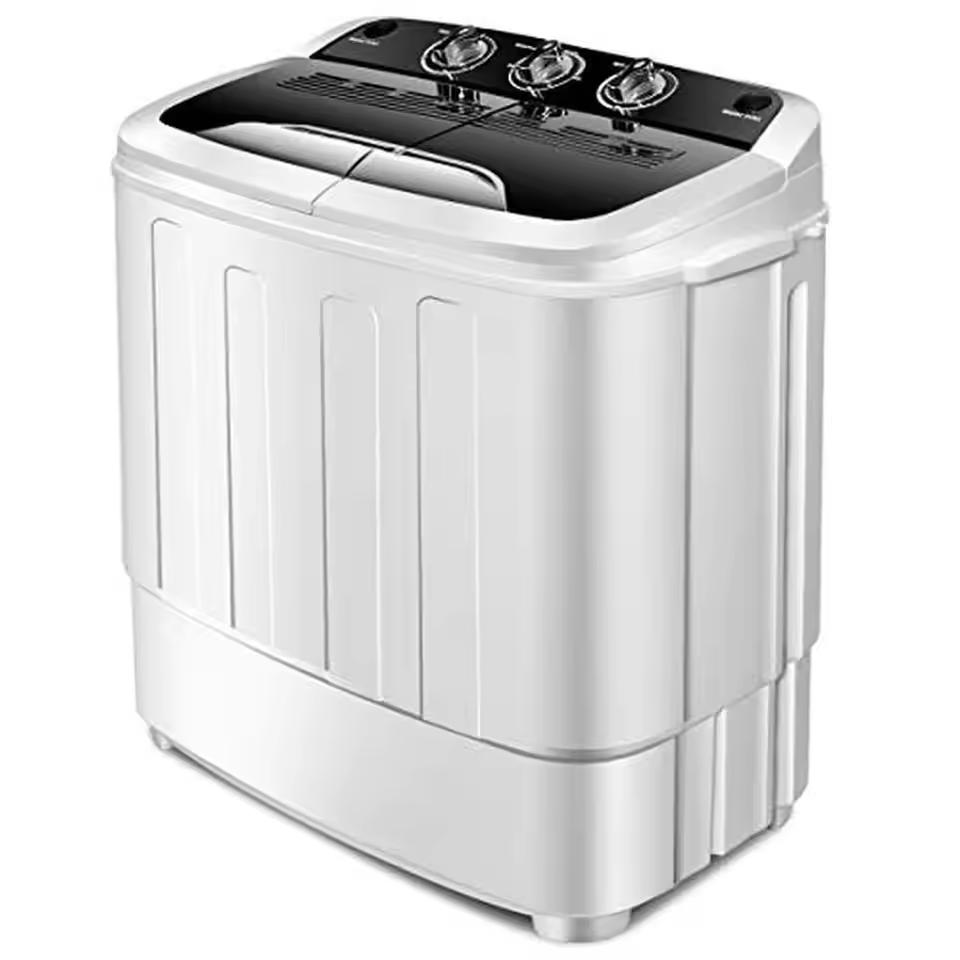
Common Challenges and How to Overcome Them
Industrial washing machines bring efficiency but are not without challenges. Managing costs and maintenance are crucial for seamless operations. Addressing these issues helps industries optimize investments and maintain performance.
Managing Operational Costs
Operational costs can be a major concern for industries using industrial washing machines. Energy consumption, water usage, and chemical expenses add up quickly. To manage these costs effectively:
- Invest in Energy-Efficient Machines: Modern machines offer features that lower electricity usage during washing cycles.
- Monitor Water Usage: Machines with adjustable water settings help reduce waste and control consumption.
- Use Quality Detergents: High-quality detergents clean efficiently, avoiding the need for repeated cycles.
- Train Employees: Educate staff on operating machines efficiently to prevent unnecessary resource use.
- Regularly Review Costs: Periodically analyze operational expenses for potential savings.
Cost management not only saves money but also improves overall profitability.
Proper Maintenance Practices
Regular maintenance is vital for the longevity of industrial washing machines. Failure to maintain equipment can lead to breakdowns and reduced efficiency. Best practices include:
- Scheduled Inspections: Check machines frequently for wear, leaks, or technical issues.
- Clean Components: Regularly clean drums, filters, and water lines to ensure smooth operation.
- Replace Worn Parts: Replace damaged parts promptly to avoid bigger issues later.
- Follow Manufacturer Guidelines: Use recommended maintenance procedures for specific machine models.
- Train Operators: Ensure staff knows how to handle and maintain machines properly.
Proper upkeep enhances reliability and minimizes downtime. Industries can avoid costly repairs and disruption through proactive maintenance strategies.
Addressing these challenges ensures industrial washing machines deliver optimal performance and long-term value. Proper cost control and maintenance are the keys to successful operations.
Conclusion
The Role of Industrial Washing Machines in Modern Industry
Industrial washing machines play a crucial role in supporting various industries. They ensure faster, more efficient cleaning processes. This helps businesses meet high productivity and hygiene standards. Industries like healthcare, hospitality, and manufacturing rely on these machines daily. Their ability to handle bulk loads improves workflows and minimizes downtime. By reducing labor needs and preserving resources, they make operations more sustainable. These machines are indispensable for maintaining cleanliness and meeting regulations.
Final Thoughts on Their Benefits
The benefits of industrial washing machines go beyond basic cleaning. They enhance productivity while reducing costs significantly. Advanced technology ensures efficiency in energy use and water conservation. Their durability saves on long-term repairs and replacements. Additionally, customization options make them adaptable to any industry. Investing in a suitable industrial washing machine provides lasting value and operational ease. For industries aiming to optimize cleanliness and efficiency, these machines are an essential asset.

